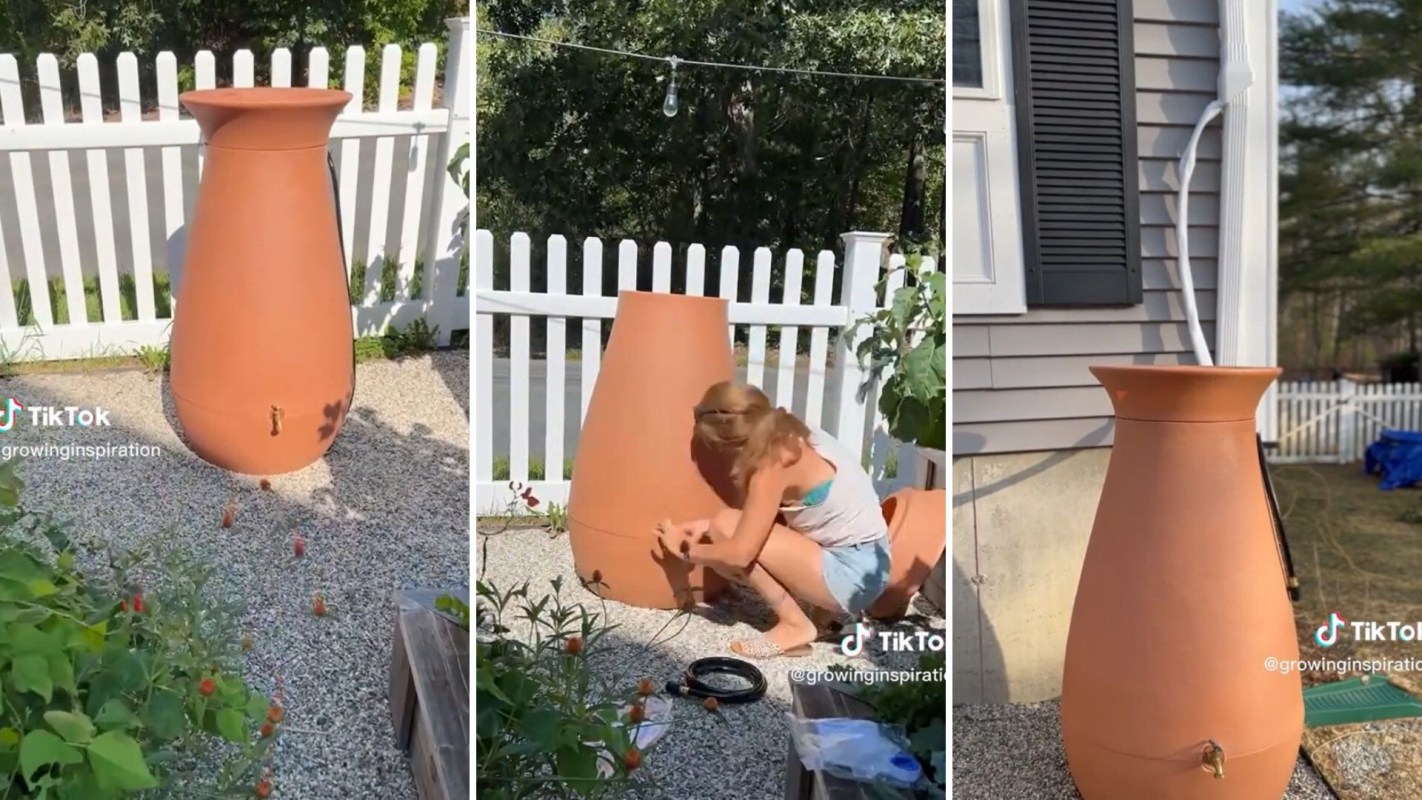Gardening in order to grow your own food — or simply to beautify your home — can be a great way to become more self-sufficient, connect with nature, and encourage a thriving ecosystem in your area. However, it can also take up quite a bit of water.
Luckily, one TikToker is here to show us how to get our hands on a whole bunch of water for free. It's just falling from the sky.
@cultivatingconfidence 💧World Water Day💧 There are several passive rainfall catchment strategies that we as home gardeners can use to collect rainwater. Here are some of the most common methods: 💧Rain Barrels: Rain barrels are large containers that are placed at the base of downspouts or gutters or open spaces to collect rainwater. 💧Rain Chains: Rain chains are a decorative alternative to downspouts that help to collect rainwater. They are made up of chains that hang vertically and guide rainwater down into a container or native plant site. 💧Rain Gardens: Rain gardens are designed to collect and store rainwater naturally. They are typically planted with native plants that can absorb water and reduce runoff. 💧Permeable Pavers: Permeable pavers are an alternative to traditional paving materials. They are designed to allow rainwater to pass through them and soak into the ground. 💧Swales: Swales are shallow ditches that are designed to capture and store rainwater. They are typically planted with native plants that can absorb water and filter out pollutants. There are many passive rainfall catchment strategies. The method you choose will depend on your preferences, space, and budget. But remember not to complicate it. You can DIY a rain barrel with almost no budget at all! #passivewaterharvesting #water #watercatchment #waterconservation #climateconcious #swale #rainbarrel #rainchain #watergarden #nativeplants #thebircharborgardens #worldwaterday #environmentaleducation #enviornmentallyfriendly #conservation #waterislife ♬ Mulberry Mouse - Alan Gogoll
The scoop
"Passive water catchment strategies like rain barrels are a simple and effective way to conserve water in the garden," The Birch Arbor Gardens (@growinginspiration) says in their video. "As gardeners, we can reduce our reliance on municipal water by capturing rainfall from our roofs to water our plants."
The TikToker adds, "This cost-effective and sustainable practice supplies nutrient-rich, chemical-free water to our plants while helping to reduce erosion caused by runoff."
The TikToker goes on to comprehensively list the various rain catchment methods — rain barrels, rain chains, rain gardens, permeable pavers, and swales (a type of shallow ditch).
And in the comments section, one viewer chimed in that many cities give away rain catchers for free.
"Check your city first before buying a rain catcher!" they write. "Our city gives them away for free."
How it's helping
According to the Environmental Protection Agency, the average American family uses 96 gallons of water per day for outdoor uses, with more than half of that figure going to watering lawns and gardens. In total, nearly nine billion gallons of water per day are used for landscape irrigation in the United States.
That all depends on where you live, of course, but collecting rainwater and using it to water your garden is a great way to avoid putting too much of a strain on the municipal water supply, as The Birch Arbor Gardens points out.
In addition, it can also save you a lot of money in the long run.
What everyone's saying
Though some commenters pointed out that you want to check locally to make sure that the rainwater is safe to use on edibles, others were excited to try out the tip.
"Just got my first rain barrel!" one commenter writes. "Only water that touches my veggie beds."
Join our free newsletter for easy tips to save more, waste less, and help yourself while helping the planet.









